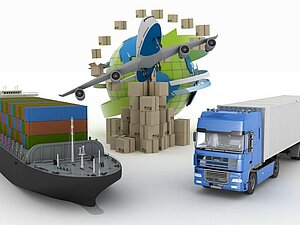Import of goods
Topic description
General

Import of goods means entry of goods from a third country (a country or a territory where the Treaty does not apply) or from a third territory which is not a part of the Union customs territory (the Island of Heligoland, the territory of Büsingen, Ceuta, Melilla, Livigno, Campione d'Italija and Italian waters of Lake Lugano) into the Union customs territory.
A person wanting to import goods, shall, prior to their entry into the Union customs territory, provide that the entry summary declaration is lodged for the goods (unless exceptions are laid down).
Goods brought into the customs territory of the Community shall, from the time of their entry, be subject to the customs supervision. They may be subject to any customs control. Transport of goods subject to veterinary, phytosanitary or any other prescribed control shall be allowed only through the border crossings designated for such traffic. At border, the customs declaration for placing goods into selected customs procedure shall be lodged. For any goods that cannot be declared orally, the customs declaration for placing goods into selected customs procedure shall be lodged at border. In Slovenia, a direct entry of goods from a third country or a third territory is possible only through the Port of Koper, Ljubljana Airport (Jože Pučnik) or by post. Customs clearance procedure can be carried out at the border customs office, or the goods, after they have been presented to the customs authorities, can be placed into the transit procedure and then transported to the destination located in the Union customs territory where they would be placed into selected procedure.
Upon presenting goods to the customs authority of destination, goods shall be assignated a customs-approved treatment or use. The customs-approved treatment or use of goods means:
- placing of goods under a customs procedure,
- entry of goods into a free zone or free warehouse,
- re-exportation of goods from the customs territory of the Union,
- destruction of goods,
- abandonment of goods to the Exchequer.
The declarant may lodge the customs declaration for the procedures, as follows:
- release for free circulation,
- transit,
- customs warehousing,
- inward processing,
- processing under customs control,
- temporary admission.
The declaration shall be lodged electronically and completed according to Rules on filling in the single administrative document and on computer data exchange and other forms used in customs procedures. Documents required for the selected customs procedure (invoice, certificate of origin, authorisation, etc.) shall be attached to the declaration. Proofs that the prescribed veterinary, phytosanitary or other controls have been made are required for certain types of goods.
Details
Instructions & explanations
Instructions
Legislation
EU legislation
Regulations
- Regulation (EU) No 952/2013 of the European Parliament and of the Council of 9 October 2013 laying down the Union Customs Code
- Commission Delegated Regulation (EU) 2015/2446 of 28 July 2015 supplementing Regulation (EU) No 952/2013 of the European Parliament and of the Council as regards detailed rules concerning certain provisions of the Union Customs Code
- Commission Implementing Regulation (EU) 2015/2447 of 24 November 2015 laying down detailed rules for implementing certain provisions of Regulation (EU) No 952/2013 of the European Parliament and of the Council laying down the Union Customs Code
- Commission Delegated Regulation (EU) 2016/341 establishing transitional rules for certain provisions of Regulation (EU) No 952/2013 of the European Parliament and of the Council, laying down the Union Customs Code where the relevant electronic systems are not yet operational



